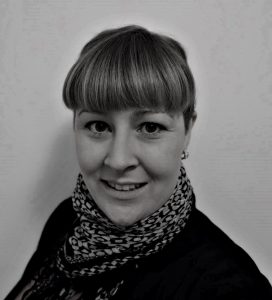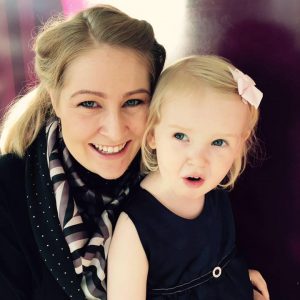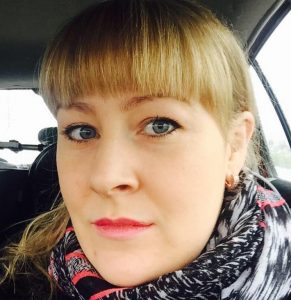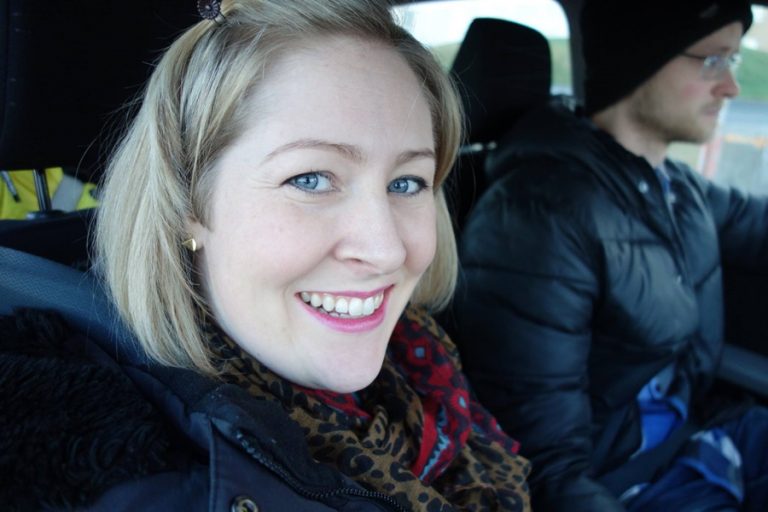Helga Baldvins Bjargardóttir is the newly hired director of Samtökin ’78 and will take office in January. Helga has a law degree with specialisation in human rights. She also holds a BA in social pedagogy and for the past two years she’s been a consultant at Stígamót – Education and Counseling Center for Survivors of Sexual Abuse and Violence, specialising in the issues of disabled victims. Helga has also vast experience of human rights consultancy in the public sector, within the Ministries of Welfare and the Interior and for a number of municipalities. GayIceland was curious to know more about the new director and hear about her vision and ideas for the organization.

Congratulations on the new job, how do you feel about it? “I‘m incredibly excited and honored to get the chance to work with such a great human rights group although I know it‘s not been the easiest time for the organization, with all the unrest that‘s been going on lately. I‘m not a member, I‘m not queer but I’m incredibly grateful for having been given this chance and hope that my education and experience will prove useful.”
Why did you apply? “Honestly, I wasn‘t going to at first, I was considering another job. But then my friend suggested this position and at first I told her I couldn‘t become the director of an organization I wasn‘t a member of. But she in return asked me whether that might not be an advantage so I thought about it and decided to apply and then leave the choice up to the board; it would be their decision whether they wanted me and my human rights knowledge and experience. Or someone else who would also be a member of the organization – and I would have understood that completely.”
Do you have any experience of campaigning for queer rights and issues? “Not directly. I‘m very interested in marginalization of minority groups and how we define them and I have somewhat specialized in the issues of disabled people. But once you‘ve studied one subordinate group in society, how prejudice affects the way they’re treated by others and the system and so on, then you can easily transfer that to other subordinate and marginalized groups.”
“I‘m incredibly excited and honored to get the chance to work with such a great human rights group although I know it‘s not been the easiest time for the organization, with all the unrest that‘s been going on lately.”
Have you had a similar job before? I‘m used to working for rights, I‘ve educated people about human rights and prejudice and contributed to changing laws to ensure human rights – both of my law theses had a practical angle so they could be utilized by the ministries to improve the rights of disabled people. But I haven’t had a job as a director before, no.”
Have you always been this interested in human rights? “I think it might just be a character trait. My sister says I’ve been like this since school, where I refused to attend birthday parties unless the whole class was invited. I’m of course a feminist and have been fighting against prejudice and degrading attitudes towards women since I was 17; I was a member of Bríet, the feminist association for young women, and one of the editors of Vera, a feminist rights magazine, and have been an activist in fighting against rape culture and other kinds of violence in society. I was just brought up to these values that you should show everyone respect and that it’s not all right to exclude some people or treat people badly. My grandmother was a passionate fighter for animal rights so maybe I inherited some of her spirit.”

Do you have passion for queer rights and issues or do you connect with them personally? “I’ve just followed the discussion of suppression and marginalization and watched the queer rights campaign. I’ve participated in Reykjavík Pride and so on and one of the things I’ve admired about Samtökin ’78 is how they fight for their rights, such as working in co-operation with the Church of Iceland when they pursued civil partnership and same-sex marriage. And I also find it commendable that they’re so in touch with the grass root work but at the same time, have a very clear vision of its ethos. That’s not a given in all such organizations.”
You’re not queer yourself, aren’t you afraid of being criticized for that by members of the organization, e.g. for not being able to put yourself in their shoes? “I’m not afraid of that, I fully expect that and actually think that people should question that. As I say, it can be a pro and a con. It’s a pro that the director, who’s essentially an employee of the board, can be completely independent and do their job without their own personal stance getting in the way. But I’m definitely wary of not being able to put myself in the shoes of queer people and that’s going to be my challenge, to be on my toes and try to understand all the different issues. Samtökin ’78 is of course an umbrella organization for many diverse groups but I think that my experience of working for the rights of disabled people and for victims of violence gives me a deep insight into the basis. And the basis of discrimination and prejudice is of course that we decide that people who are in any way different, are worth less and we allow ourselves to treat them differently than we would a white, middle-aged, no disabled, heterosexual man.”
“My biggest challenge will probably be persuading people that I can handle this job without being queer.”
There’s been a lot of conflict and unrest lately within Samtökin, does that not intimated you? To some extent, yes, but at the same time it’s a compelling challenge and an opportunity to work towards solidarity and union again.”
As director, will you follow the lines laid by the board or will you bring something new to the organization? “I see my role first and foremost as channelling the board’s ideas and aims. I’m intrigued by this notion of multidimensional discrimination, that we are aware that there’s not just one group of queer people but e.g. queer disabled people and queer refugees and so on. I think that one of the more exciting aspects of the organization is that they can bring various groups together and I have my own ideas, opinions and experience that I’ll definitely use to propel the rights campaign of all these people.”

What’s the first thing you’ll be doing when you start the new job? “Well, the schedule for the first three months is pretty hectic, with the annual meeting coming up amongst other things. So I’ll be quite busy with that, on top of settling in and learning the ropes.”
What do you think are the biggest challenges that Samtökin ’78 are facing now? “My biggest challenge will probably be persuading people that I can handle this job without being queer. But after having gone through the financial statements of the organization, I’ve found that the budget they receive is an absolute disgrace, considering the work they do. They do a lot of counseling and work on many information campaigns within society and this is a human rights organization and they should simply be well supported by the state; they’re the civil society of society. Then of course, there’s a lot of work ahead to rebuild trust and union amongst members; I think it’s a good sign that these conflicts haven’t dissolved the organization and there are so many amazing people there that I don’t think it’s going to be a problem, but it’s going to be an effort.”


